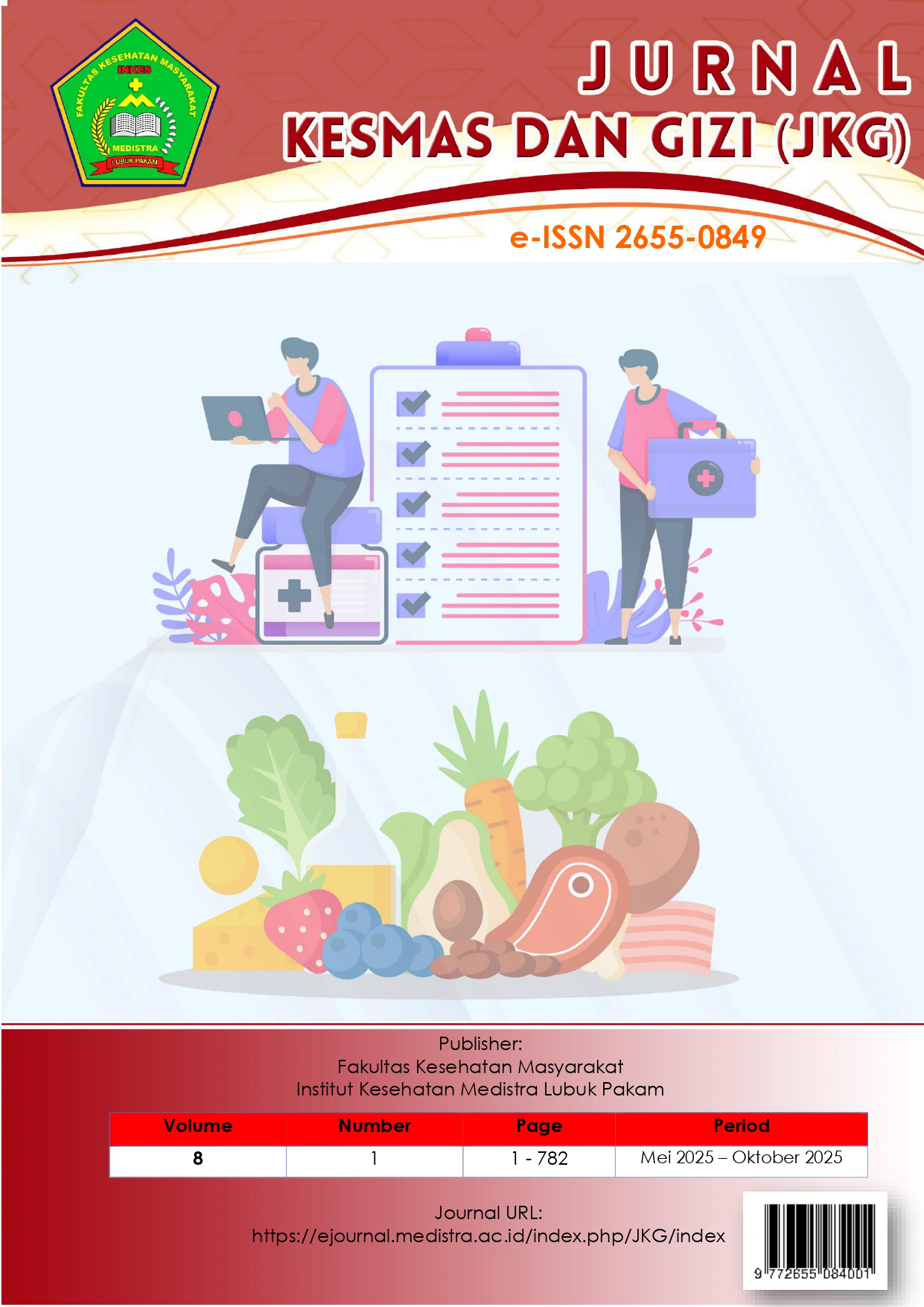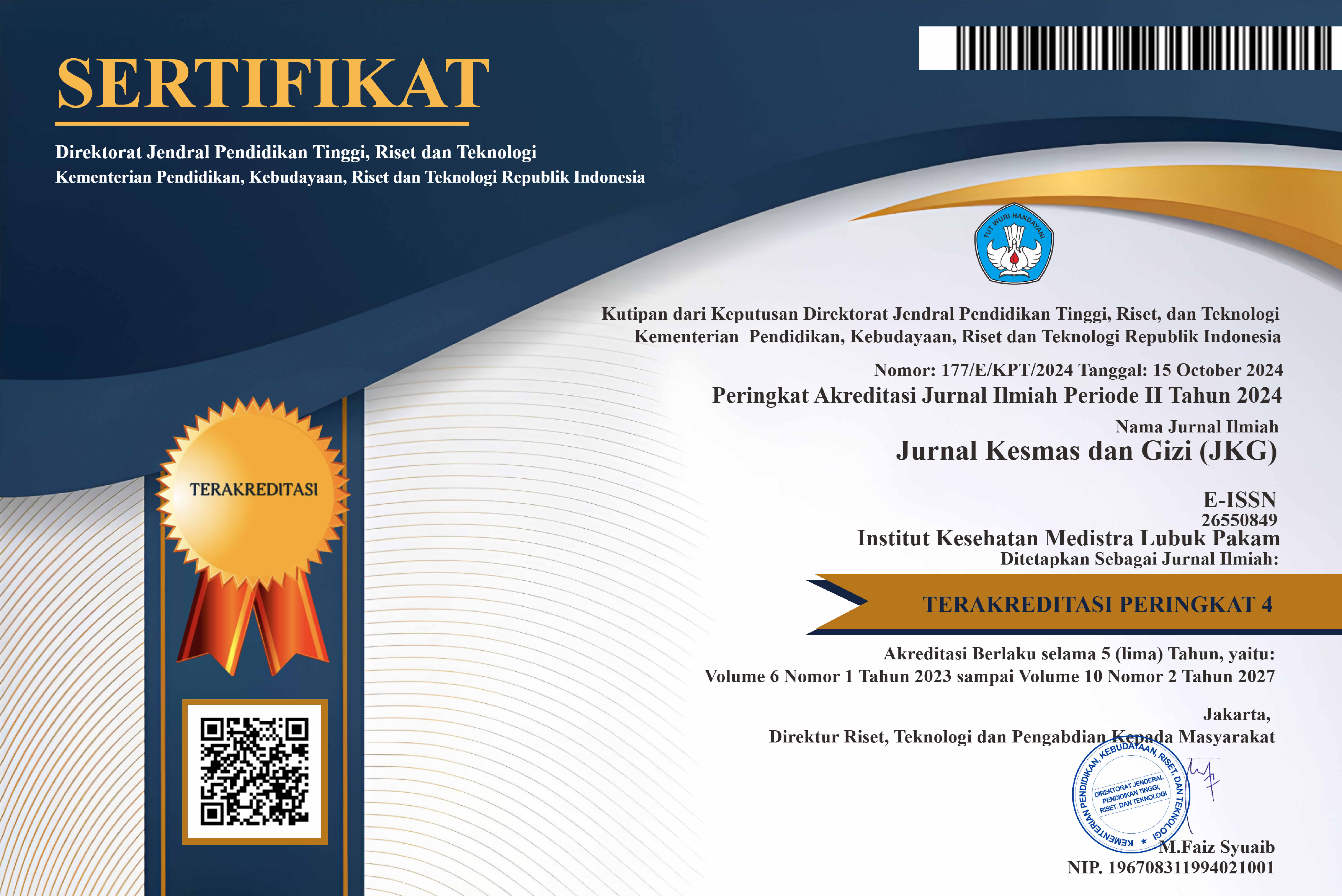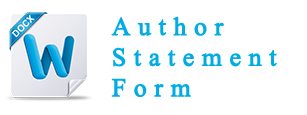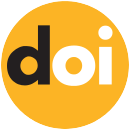The Effect of Health Promotion on Adolescents’ Knowledge Regarding Breast Self-Examination (BSE) at Trisakti Junior High School Lubuk Pakam in 2025
DOI:
https://doi.org/10.35451/e3eg7t64Keywords:
Knowledge, Health Promotion, Adolescents, Breast Self-Examination (BSE).Abstract
Breast cancer remains one of the leading causes of mortality among women globally. Early detection through Breast Self-Examination (BSE) is an essential preventive measure to reduce the risk of late diagnosis. Nevertheless, the level of knowledge among adolescents regarding BSE is still relatively low, indicating the need for effective health promotion interventions to enhance understanding and foster positive attitudes toward early detection. Educational media-based health promotion is expected to improve adolescents’ awareness and encourage autonomous practices in performing BSE. This study aimed to evaluate the effectiveness of health promotion delivered through leaflet and animated video media in improving adolescents’ knowledge, attitudes, and practices regarding BSE in a junior high school setting. The research applied a pre-experimental design with a one-group pre-test–post-test approach. A total of 41 students from Trisakti Private Junior High School, Lubuk Pakam, participated as respondents. The intervention consisted of health education using leaflet and animated video media. Data were collected through questionnaires measuring knowledge, attitudes, and practices before and after the intervention. The Wilcoxon signed-rank test was employed to analyze the significance of differences between pre- and post-intervention scores. The findings revealed a statistically significant improvement across all measured variables, particularly in adolescents’ knowledge about BSE (p = 0.000). The mean knowledge score increased from 6.07 prior to the intervention to 7.44 afterward. Moreover, significant enhancements were also observed in attitudes and practices following the intervention. These results indicate that health promotion using leaflet and animated video media is effective in increasing adolescents’ knowledge, attitudes, and practices toward performing BSE. Continuous implementation of such educational programs is recommended to foster awareness and proactive health behavior among adolescents in early breast cancer detection.
Downloads
References
[1] Y. Azhar, A. Rahman, S. K. Lestari, dan N. R. Wijaya, “Breast Self-Examination Practice and Its Determinants: A Systematic Review and Meta-analysis,” Journal of Women’s Health and Prevention, vol. 3, no. 2, pp. 45–58, 2023. [Online]. Available: https://pmc.ncbi.nlm.nih.gov/articles/PMC10416892.
[2] Dewi Rahman Oktavia & Roulita. (2023). Pengaruh Promosi Kesehatan Menggunakan Media Video Terhadap Tingkat Pengetahuan Remaja Putri Tentang Sadari Di Smk Negeri 3 Kota Bekasi 2023. Repository STIKes Medistra Indonesia (RSMI), 15-140.Education 5.1 (2024): 508-515.
[3] Amanda Amalia, A. (2023). Pengaruh Pendidikan Kesehatan Melalui Media Video Pemeriksaan Payudara Sendiri (SADARI) Terhadap Tingkat Pengetahuan Dan Keterampilan Remaja Putri Tentang Pemeriksaan Payudara Sendiri Di SMP Negeri 1 Sukoharjo (Doctoral dissertation, Universitas Kusuma Husada Surakarta).
[4] Fitriani, A., Kirana, R., Megawati, M., & Rusmilawaty, R. (2025). Pengaruh video edukasi terhadap pengetahuan dan sikap remaja putri tentang pemeriksaan payudara sendiri (sadari) di sman 1 batu ampar tahun 2024. Seroja Husada: Jurnal Kesehatan Masyarakat, 2(2), 403-416.
[5] Marta A P Usman, A. M., & Helen, M. (2022). Pengaruh Health Education Terhadap Pengetahuan Remaja Putri Tentang Sadari Dalam Upaya Pencegahan Penyakit Kanker Payudara Di KP. Sidamukti Rw 10 Cilodong. MAHESA: Malahayati Health Student Journal, 2(3).
[6] Ina Rusniawati, Retno Puji Astuti & Salfia Darmi. (2022). Pengaruh Pengetahuan, Motivasi, Dan Sikap Pada Wanita UsiaSubur (Wus) Terhadap Pemeriksaan Payudara Sendiri Dengan Media Lembar Balik Di Posyandu Duyung Wilayah Kerja Puskesmas Taktakan Serang Banten. Journal of Midwifery and Health Research (JOMHEAR), 17-24.
[7] World Health Organization, “Adolescent Health: Overview,” World Health Organization, Geneva, 2023. [Online]. Available: https://www.who.int/news-room/fact-sheets/detail/adolescent-health
[8] A. Fatihah, Factors Related to Breast Self-Examination Behavior (SADARI) of University of Muhammadiyah Surakarta Students, J. Kesmas dan Gizi (JKG), vol. 6, no. 2, pp. 281 – 288, Apr. 2024. doi: 10.35451/jkg.v6i2.2048.
[9] A. U. Saputra, “The Effect of Health Education on Breast Self-Examination (SADARI) on Knowledge, Attitudes, and Actions of Adolescent Girls,” Lentera Perawat, vol. 7, no. 1, pp. 10–18, 2024. [Online]. Available: https://jurnal.stikesalmaarif.ac.id/index.php/lenteraperawat/article/view/487
[10] H. Cheraghalizadeh, M. Eghbali, F. Rakhshani, dan L. Sadeghi, “Effectiveness of face-to-face and virtual education to promote breast self-examination: A randomized controlled trial,” BMC Cancer, vol. 25, pp. 1–9, 2025. [Online]. Available: https://bmccancer.biomedcentral.com/articles/10.1186/s12885-025-13458-1
[11] G. Kandasamy, T. Y. Rajesh, S. Arumugam, dan P. Devi, “Knowledge, attitude, and practice towards breast self-examination among adolescents: A cross-sectional study,” Frontiers in Public Health, vol. 12, pp. 112–119, 2024.
[12] E. O. Ogunmodede, O. O. Afolabi, dan R. A. Ajayi, “Promoting breast health among female adolescents: A school-based intervention study,” International Journal of Women’s Health and Cancer Prevention, vol. 9, no. 1, pp. 33–41, 2024. [Online]. Available: https://pmc.ncbi.nlm.nih.gov/articles/PMC11438366/
[13] R.O. Uruntie, C.H. Oputa, E. Peters, and A. Otovwe, “Effect of educational intervention on the knowledge, attitude and practice of breast self-examination among female students at a private university in Southern Nigeria,” BMC Cancer, vol. 24, 2024. [Online]. Available: https://bmccancer.biomedcentral.com/articles/10.1186/s12885-024-12116-w
[14] A. M. Masso Calderon, J. F. Menesses-Echavez, J. E. Correa-Bautista, A. Tovar-Cifuentes, P.A. Alba-Ramirez, C.E Charry-Angel, “Effects of an Educational Intervention on Breast Self-Examination, Breast Cancer Prevention-Related Knowledge, and Healthy Lifestyles in Scholars from a Low-Income Area in Bogotá, Colombia,” PLOS ONE/PMC, vol. 10, no. 5, 2015. [Online]. Available: https://pmc.ncbi.nlm.nih.gov/articles/PMC5949133/
[15] A.E. Sadoh, C. Osime, D.U. Nwaneri, B.C. Ogboghodo, C.O. Eregie, and O. Oviawe, “Improving knowledge about breast cancer and breast self-examination in female Nigerian adolescents using peer education: a pre-post interventional study,” BMC Women’s Health, vol. 21, no. 1, pp. 1–8, 2021. [Online]. Available: https://bmcwomenshealth.biomedcentral.com/articles/10.1186/s12905-021-01466-3.
[16] Hasibuan, N. R., & Girsang, B. M. (2023). Pengaruh Promosi Kesehatan dan Teknologi Tepat Guna Pemeriksaan Payudara Sendiri (SADARI) pada Remaja Putri di SMP Negeri Tandam Hulu 1. Jurnal Pengabdian Kepada Masyarakat (ABDIKEMAS), 5(2), 141-145.
Downloads
Published
Issue
Section
License
Copyright (c) 2025 Irma Nurianti, Jernih Dekosta Batubara

This work is licensed under a Creative Commons Attribution 4.0 International License.
Copyright in each article is the property of the Author.



























